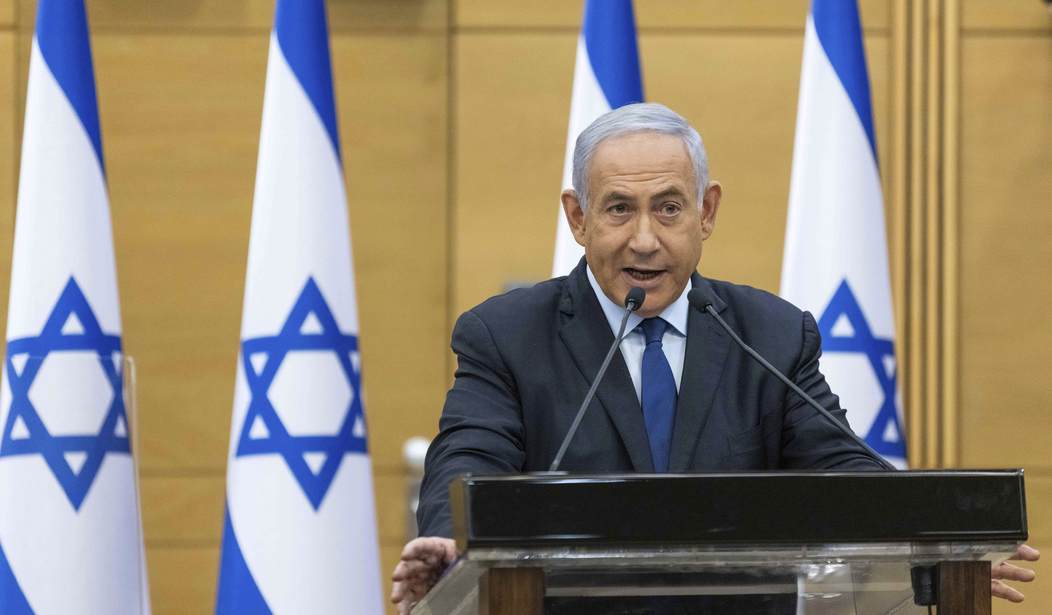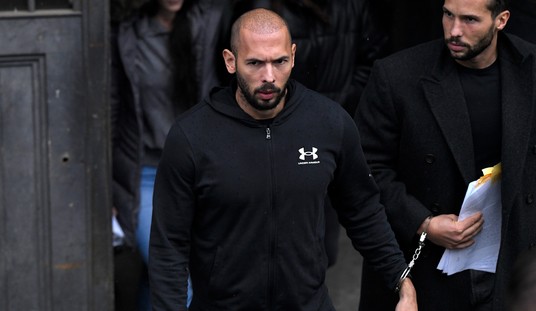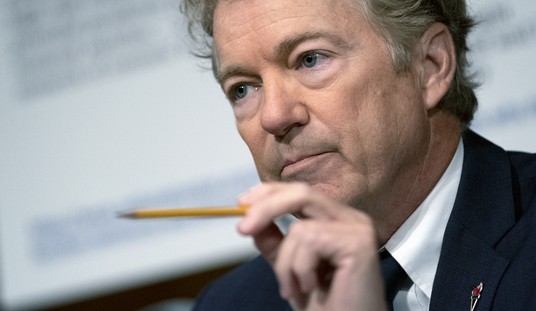In the wake of the October 7 massacres, the famously fractious Israelis muscled up their national unity and put aside deep political rivalries to form a war government. That arrangement couldn’t last forever, but it may not even last four months, according to news from Israeli media. And the dissolution might be caused by Benjamin Netanyahu’s insistence on total victory — and stasis until it is achieved.
War cabinet minister and former IDF chief of staff Gadi Eisenkot called for new elections and scoffed at Netanyahu’s promise to vanquish Hamas. Eisenkot, who lost a son fighting in Gaza, also declared that he had no confidence any longer in Netanyahu’s leadership:
The interview with Eisenkot aired hours after Netanyahu rejected the idea of holding elections in the middle of a war that he has said could well continue into 2025, and vowed to “bring complete victory” over Hamas in response to the Gaza-ruling terror group’s October 7 attacks, when thousands of terrorists went on a killing spree across southern Israel, massacring 1,200 people, mostly civilians, and taking some 240 as hostages.
“Whoever speaks of absolute defeat is not speaking the truth,” Eisenkot said in the interview. “That is why we should not tell stories… Today, the situation already in the Gaza Strip is such that the goals of the war have not yet been achieved.” …
Asked whether Israel’s current leadership is telling the public the truth, Eisenkot responded simply, “No,” and appeared to take a jab at Netanyahu’s refusal so far to take direct responsibility for the October 7 intelligence, military and leadership failures.
“I am already at the stage and at an age where I do not trust this or that leader with my eyes closed, and I judge a man by his decisions and the way he leads the country,” he said.
Eisenkot serves not just as a war cabinet minister, but also as the leader of Israel’s National Unity Party, which controls 12 seats in the Knesset. If Eisenkot pulls out of the current unity government, that alone wouldn’t be enough to trigger an election. However, it likely would push Netanyahu’s political opponents to follow suit and attempt to push Netanyahu out, either through the elections that Eisenkot demands or by forcing Likud to choose another prime minister.
This doesn’t exactly come as a surprise, although the timing might. Netanyahu has been an unpopular figure for a while in Israel, and the shocking failures in security and intelligence on October 7 came on his watch. The open criticism from Eisenkot has only torn a thin scab off of a likely-mortal political wound for Netanyahu and Likud. As a result, the emergency war government is “close to collapse,” Yanir Cozin reports for the Jerusalem Post, and that a frustrated Benny Gantz is close to forcing an end to it:
The bottom line is: Will this emergency government last much longer? The prevailing understanding is that it will not, and with the diminishing prospects of a new hostage deal, the likelihood of the emergency government breaking up increases. Recent rumors about serious contacts between the US and Qatar are one of the reasons Gantz and Eisenkot are choosing to remain in the government, as without them, they believe there would not be much chance for a new deal to release the hostages.
Moreover, and this seems to be true, the two of them are asking themselves, what difference would it make if they resigned. Would that lead to a new election? Would it bring down the government? Even if Gantz and Eisenkot step down, Gideon Sa’ar, the leader of the New Hope party, which is part of the National Unity bloc, would most likely remain.
Cozin also asserts that the Biden administration sees the rifts widening and are grasping at the opportunity to push Netanyahu out:
While the Americans are compelled to take Netanyahu’s political affairs under consideration, he, in turn, is unwilling to extend the same goodwill gesture toward the Democratic candidate currently residing in the White House, who is facing a challenging and tumultuous reelection campaign.
There is a reason why John Kirby, the US’s National Security Council spokesperson, stated this week that Israel has already shifted to a low-intensity conflict in the North and is expected to undergo a similar transformation in regard to the South.
This completely contradicts Netanyahu’s assertion the previous day, in which he claimed that warfare has intensified in the southern region of the Gaza Strip. The Americans are exposing Netanyahu’s bluff, despite his attempts to keep the Israeli public in partial darkness concerning the way this war is being conducted.
That seems like a stretch, especially given how the Biden administration is pressuring Netanyahu. Their continued insistence on a commitment to a two-state solution — the White House announced this morning that they would continue to demand a Palestinian state — is likely helping Netanyahu. Israel’s president Isaac Herzog is a center-Left politician who is no ally of Netanyahu, and Herzog just went to Davos to declare that demand insane and idiotic. And that’s objectively true, all the more so since Gaza has been a quasi-state since 2005, and Gazans turned it into a terror camp aimed at Israel’s utter destruction.
If Biden and his team keep insisting on Palestinian statehood as a reward for the people behind the October 7 massacres, Netanyahu might become popular enough to stave off elections indefinitely — which is apparently his plan.
On the other hand, if this unity government falls, that sets up a very dicey situation for the Israelis’ war on Hamas. Netanyahu seems to be the driving force behind actually ending this 20-year terror war on Israel’s terms rather than return to another episode of a frozen conflict. Perhaps a more popular figure will emerge that will prosecute this war as ferociously as this unity government has over the last three-plus months. At the moment, though, it sounds as though Netanyahu’s rivals are not interested in that policy … or maybe just want a leader that can inspire their confidence in it. Let’s hope it’s the latter.








Join the conversation as a VIP Member